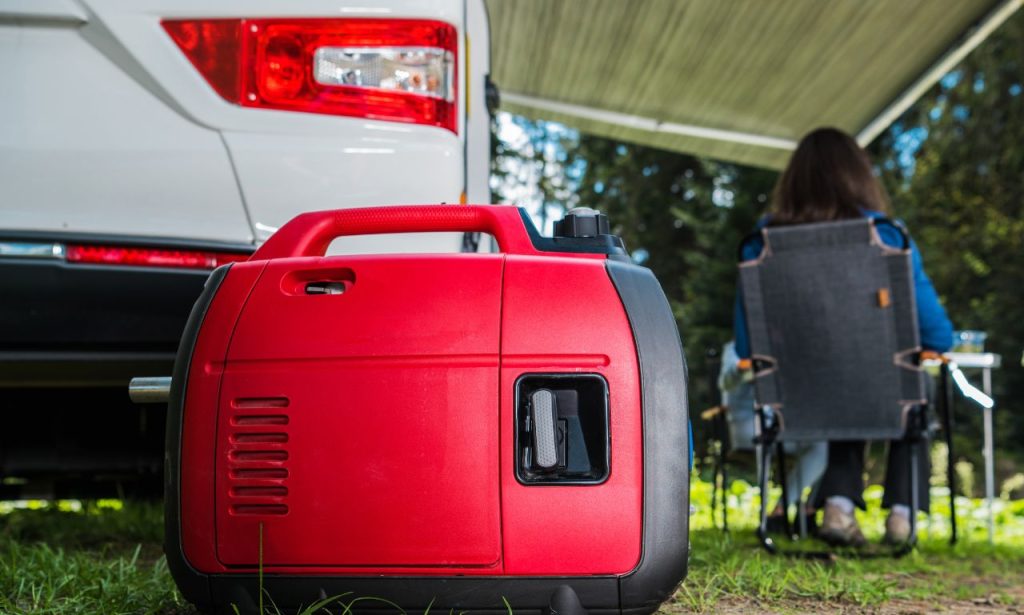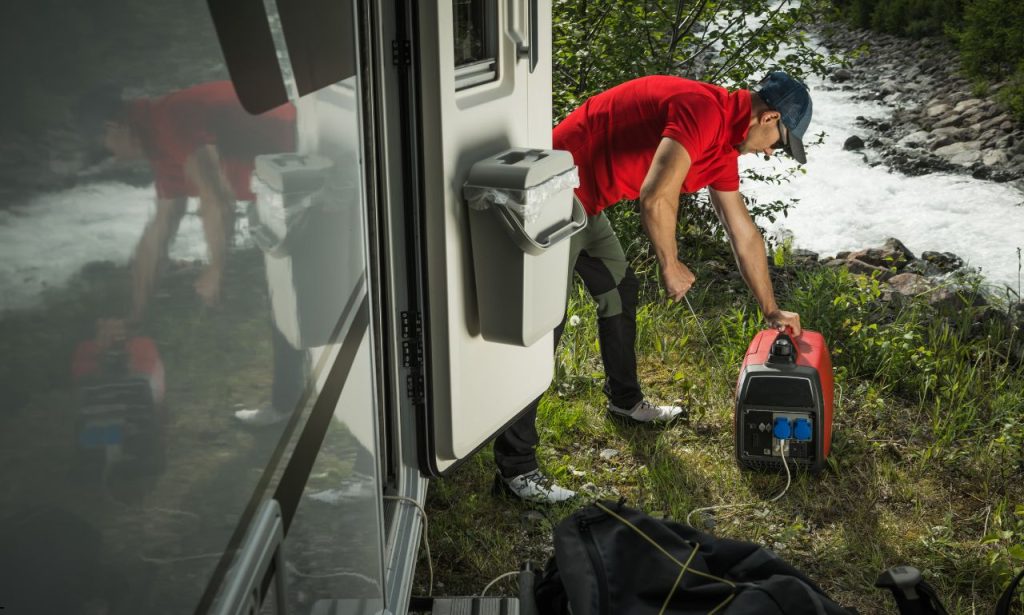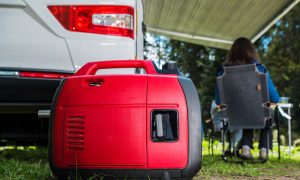Power outages happen when you least expect them. Whether it’s a storm knocking out your neighborhood’s grid or you’re camping in a remote location, having reliable backup power can make all the difference. Traditional generators have served us well for decades, but inverter generators are changing the game entirely.
These modern power solutions offer cleaner electricity, whisper-quiet operation, and fuel efficiency that surpasses that of conventional models. From powering essential medical devices during emergencies to keeping your RV comfortable on weekend getaways, inverter generators have become the go-to choice for smart consumers.
This comprehensive guide covers everything you need to know about choosing the perfect inverter generator. We’ll explore top-rated models, compare features that matter most, and help you find the ideal match for your specific power needs and budget.
What is an Inverter Generator?
Inverter generators represent a significant leap forward in portable power technology. Unlike traditional generators that produce raw AC power directly from the engine, these sophisticated machines convert mechanical energy into DC power first, then use advanced electronics to create clean, stable AC electricity.
The heart of an inverter generator lies in its computer-controlled system. This technology automatically adjusts engine speed in response to power demand, resulting in remarkable fuel efficiency and reduced noise levels. When you’re only running a few small devices, the engine slows down considerably, saving fuel and operating almost silently.
Most inverter generators produce what’s called “clean power” – electricity with minimal harmonic distortion that’s safe for sensitive electronic equipment. Your smartphone, laptop, or modern appliances can connect without fear of damage from voltage spikes or irregular power delivery.
Advantages of Inverter Generators Over Traditional Models

The benefits of inverter technology extend far beyond simple power generation. Fuel efficiency stands out as the most compelling advantage, with many models offering double the runtime per gallon compared to conventional generators.
Noise reduction makes these units particularly attractive for residential use and camping. While traditional generators often roar at 70+ decibels, quality inverter models operate as quietly as 48-52 dB – quieter than normal conversation levels. This makes them neighborhood-friendly and perfect for situations where noise restrictions apply.
Weight and portability represent another significant improvement. Inverter generators typically weigh 30-50% less than comparable conventional units, making them easier to transport and store. The compact size allows them to fit comfortably in truck beds, RV storage compartments, or garage corners.
Power quality sets inverter generators apart for users with sensitive electronics. The stable voltage output protects everything from phone chargers to medical devices, eliminating the risk of costly equipment damage from power fluctuations.
Key Features to Look for in Inverter Generators
Smart shoppers focus on several critical specifications when comparing inverter generators. Power output remains the fundamental consideration – calculate your essential load requirements and add 20-30% for safety margin. A 2,000-watt generator handles most basic needs, while a 4,000-watt generator or higher supports larger appliances, such as refrigerators and air conditioning units.
Runtime specifications indicate the duration of operation on a full tank at various load levels. Look for models offering 8+ hours of runtime at 25% load, which covers overnight operation for essential devices during extended power outages.
Fuel options add flexibility to your power planning. Dual-fuel models run on both gasoline and propane, with propane offering cleaner burning, longer storage life, and more consistent performance in cold weather.
Receptacle variety ensures compatibility with your devices. Standard household plugs (120V) handle most equipment, while 240V outlets support larger appliances. USB ports eliminate the need for separate adapters when charging phones and tablets.
Best Overall
The Champion Power Equipment 4500-watt inverter generator consistently earns top ratings for its exceptional balance of power, efficiency, and value. This dual-fuel model delivers reliable performance, whether running on gasoline or propane, making it incredibly versatile for a wide range of applications.
With 4,500 starting watts and 3,500 running watts, this unit handles substantial loads, including refrigerators, power tools, and multiple household appliances, simultaneously. The Quiet Technology keeps noise levels at just 61 dB, making it suitable for residential areas and campgrounds with noise restrictions.
Runtime reaches an impressive 14 hours on gasoline at 25% load, while propane operation provides 10.5 hours from a standard 20-pound tank. The unit features electric start convenience, eliminating the frustration of pull-cord starting during stressful power outage situations.
Best for the Money
Budget-conscious buyers should consider the WEN 56200i, which packs surprising performance into an affordable package. Despite its lower price point, this 2000-watt unit includes many premium features typically found in more expensive models.
Fuel efficiency impresses with up to 6 hours of runtime at 50% load, while the 53 dB noise level ensures neighbors’ satisfaction. The unit weighs just 48 pounds, making it easily portable for camping trips or emergencies.
Smart load management automatically adjusts engine speed to match power demand, maximizing fuel economy and extending component life. Multiple outlets include two household receptacles, one 12V DC port, and dual USB ports for device charging.
Best Small Inverter Generator
Honda’s EU22i sets the standard for compact inverter generators, combining legendary reliability with whisper-quiet operation. At just 47 pounds, this unit delivers exceptional portability without sacrificing power quality or fuel efficiency.
The 2200-watt capacity handles most essential devices, from refrigerators to power tools. Honda’s exclusive Eco-Throttle system automatically adjusts engine speed to match electrical demand, providing up to 8.1 hours of continuous operation from the 0.95-gallon tank.
Noise levels barely register, ranging from 48 to 57 dB, depending on the load, making this model ideal for early morning use or quiet camping environments. The unit’s parallel capability allows for connection to a second EU22i, providing double the power when needed.
Best Dual-Fuel Models
Westinghouse’s iGen4500 stands out among dual-fuel options, offering seamless switching between gasoline and propane operation. This flexibility proves invaluable during extended outages when fuel availability becomes uncertain.
Gasoline operation provides 18 hours of runtime at 25% load from the 3.4-gallon tank, while propane delivers 21 hours from a standard 20-pound cylinder. The remote start feature adds convenience during harsh weather or nighttime situations.
Power output reaches 4500 surge watts and 3700 running watts, efficiently supporting household essentials during emergencies. The unit features a comprehensive outlet selection, offering 120V, 240V, and USB options for maximum versatility.
Bluetooth-Enabled Models
Modern inverter generators are increasingly equipped with smartphone connectivity via Bluetooth technology. These smart features allow remote monitoring of fuel levels, power output, and maintenance schedules from your phone.
Champion’s line of Bluetooth-enabled generators lets users start, stop, and monitor their units from up to 80 feet away. The dedicated app provides real-time data on runtime remaining, power consumption, and service reminders.
Remote monitoring becomes particularly valuable during extended power outages when checking the generator frequently is impractical. Users receive alerts for low fuel, maintenance needs, or operating issues before they become serious problems.
Indoor Safety vs. Outdoor Usage
Safety considerations are paramount when operating any generator. Inverter generators produce carbon monoxide like all gasoline engines, making outdoor operation essential. Never operate generators inside homes, garages, basements, or any enclosed spaces.
Position generators at least 20 feet from windows, doors, and vents to prevent exhaust infiltration. Many newer models feature CO Shield technology, which automatically shuts down the engine if dangerous carbon monoxide levels are detected near the unit.
Weather protection extends generator life significantly. While most inverter generators handle light rain, heavy weather requires proper shelter or weatherproof covers designed specifically for your model.
Fuel Efficiency and Operation Costs

Operating costs vary significantly between different fuel types and generator models. Gasoline typically offers the lowest upfront fuel cost but requires more frequent refills and degrades quickly in storage.
Propane costs more per BTU but burns cleaner, stores indefinitely, and performs more consistently in cold weather. Dual-fuel models offer the flexibility to choose between fuels based on current prices and availability.
Calculate total operating costs, including fuel consumption, maintenance intervals, and oil changes. High-quality inverter generators often prove to be more cost-effective in the long term despite their higher initial purchase prices.
Conclusion
Choosing the right inverter generator requires balancing power needs, budget constraints, and specific use cases. Quality models from established manufacturers offer years of reliable service with minimal maintenance requirements.
Consider your essential power requirements carefully, factor in fuel preferences, and prioritize features that match your intended applications. Whether you need emergency backup power or portable electricity for recreation, today’s inverter generators deliver unprecedented performance in compact, efficient packages.
Smart buyers invest in models with proven track records, comprehensive warranties, and readily available service support. The peace of mind that comes with reliable backup power makes a quality inverter generator one of the best investments you can make.
ALSO READ: What Causes High Pressure Fuel Pump Failure
FAQs
Quality inverter generators typically last 2,000-3,000 hours with proper maintenance, equivalent to 10-15 years of occasional use.
Most inverter generators can handle light moisture but should be protected from heavy rain with appropriate covers or shelters.
Calculate essential loads (refrigerator, lights, furnace blower) and add 20-30% safety margin. Most homes require 3,000-5,000 watts for basic needs.
Yes, for most users. Lower fuel consumption, reduced noise, and clean power output typically justify the higher initial investment.
Exercise your generator monthly for 15-20 minutes to keep its components lubricated and its fuel fresh, thereby preventing starting problems during emergencies.




